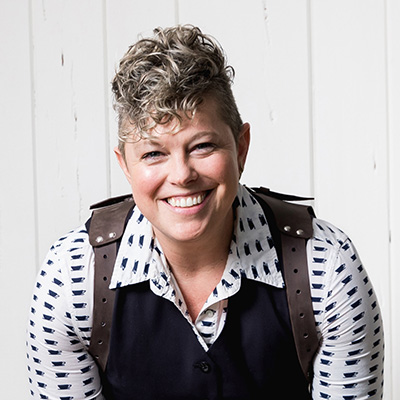Agency life and wellbeing can easily be perceived and experienced as opposing ends of the spectrum. We need to listen to and understand our clients’ needs, communicate with our teams, think critically, assist with implementation, prep for tomorrow’s meetings, and find time to deal with personal issues—oh, and remember to track our time, eat lunch, and not complain about work when we get home.
At creative and technology agencies, it’s easy for employees to get bogged down in large piles of work and it’s hard to find time for a personal life and even just relaxation. With so many moving parts of agency life, we need to learn how to tune into our emotions and what our bodies might be telling us.
Creating a work-life balance within your agency can reduce turnover and burnout. When workload impacts employees negatively, they aren’t relaxed or creative. The mental, emotional and physical wellbeing of our teams is essential to their overall wellness and productivity.
Mental Balance and Agency Life
According to research, people spend nearly 47 percent of their waking hours thinking about something other than what they’re doing. This means that many of us operate on autopilot and that we aren’t utilizing our mental processes as much as we should. To combat this and to focus better on tasks and projects, incorporate mindfulness practices, such as simple grounding techniques, meditation or breathing exercises.
Grounding techniques, which involve exercises that help the body and mind become more in touch with your surroundings, can calm your nervous system and re-orient you to the present. Grounding exercises can also elevate mood and reduce emotional stress. Meditation and breathing exercises are additional ways to increase relaxation and thus, help increase focus and productivity. The more relaxed you are, the more you’ll be able to get things done. Getting 8 full hours of sleep and eating small, healthy meals throughout the day can provide you with the strength and energy you need to complete tasks and remain productive. Getting enough sleep and taking in essential nutrients also promote a clear, alert mind.
Without a good mental balance, you won’t be able to get nearly as much done as you would otherwise. Furthermore, you’ll just go to work feeling sluggish, stressed, fatigued, and unmotivated, feelings that lead to burnout, lower productivity, and most importantly poor mental health. Having a good mental balance means that you can leave your home feeling rejuvenated and refreshed for a new workday.
Emotional Awareness and Agency Life
Listen intently to understand what others are saying (and not saying). When you feel emotionally triggered, jot down what was said or done that made you feel a certain emotion (i.e. anger, sadness, etc.) and revisit it later that night or the next morning to see if you can associate your emotional reaction with a past event, memory, or experience. For those more advanced in personal and psychological development, explore shadow work to understand your own past experiences and how those trigger you and impact your behaviors.
Shadow work can help you uncover everything you have disowned or rejected about yourself such as your most painful, self-sabotaging beliefs and feelings. This, in turn, helps you build your self-awareness and to get in touch with your higher self. As you do this, you start to become more aware of how your thoughts, behaviors, and actions influence and direct the culture of your agency. And this is what brings on self-leadership, which then leads your team to develop their own self-leadership skills.
Physical Wellness and Agency Life
Sitting at a desk all day isn’t necessarily great for your physical health. In 2016, the American Heart Association (AHA) released a report that suggested sedentary behavior can raise the risk of heart disease, diabetes, and certain types of cancer. The AHA urges employers and agency owners to invest in alternatives to sitting such as standing desks and isometric balls to sit on. Another way to reduce the amount of time you spend sitting is to get outside during lunch, if possible. If you’re meeting with one to two people in your organization, try walking meetings instead of sitting in a conference room or each other’s offices.
According to recent research, walking leads to an increase in creative thinking. Not only do you get your steps, but the mind is also stimulated. During walks, the brain is more relaxed due to a release of certain chemicals. These chemicals encourage the brain to think with more clarity and focus better on tasks.
To improve your physical health, try small modifications to replace poor habits that no longer service you with ones that will benefit you in all aspects of your life: quit smoking, try a buti yoga class, drink less alcohol at night and more water throughout your workday.
Comment below to share any mental, emotional or physical challenges you’re trying to overcome OR how you’ve been able to bring wellness into your agency.



0 Comments